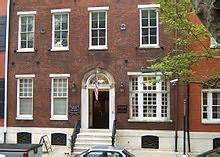Jul 1 2016 - Nov 1 2016
Philadelphia, PA
From 1947 to 1949, one of the most ambitious traveling exhibitions ever mounted toured the United States. Aimed at promoting “a greater appreciation of the blessings of American heritage” the Freedom Train brought 126 of the nation’s most iconic documents —from Columbus to the Bill of Rights to the World War II surrender — to 3.5 million people across America. The goal was to promote pride in America and her political and economic systems, and to encourage civic participation. The “Freedom Documents” travelled 37,000 miles through all 48 states in a specially-designed train. Each town visited by the train sponsored a Rededication Week of civic events and those Americans who were unable to see the train physically were reached by a massive media campaign that ranged from subway posters to newsreels to Captain Marvel comics.
The train was a national project, drawing on both government and private involvement, but it had strong roots in Philadelphia. The train itself was launched in Philadelphia on Constitution Day, September 17, 1947, and visited again in January 1949. The Rosenbach’s co-founder, Dr. A.S.W. Rosenbach, was on the document advisory committee and the Rosenbach brothers were the largest private lenders to the train.
While the train’s goals were to promote unity and showcase “the development of American democracy as the fullest expression of individual freedom, human rights, and the dignity of man,” it also raised questions about the nature and limits of that freedom. The train’s route through segregated America stirred controversy over whether an exhibit dedicated to freedom could allow segregated visitation and Langston Hughes penned a strongly worded poem, “Freedom Train,” insisting that it could not. Ultimately a policy of desegregated visitation was adopted and stops were cancelled in Memphis and Birmingham when they refused to comply.
The Rosenbach’s exhibition will reunite selected documents from the original Freedom Train, including the Bay Psalm Book, Common Sense, and Lincoln's Baltimore Address, and will explore the image of America the train strove to provide and the questions it raised about interpreting history and promoting freedom.
Exhibition Venues & Dates
Jul 1 2016 - Nov 1 2016
Philadelphia, PA
